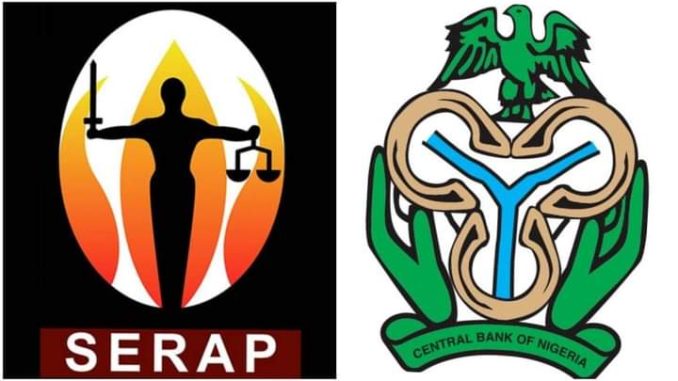
The Socio-Economic Rights and Accountability Project (SERAP) is a civil society organization in Nigeria.
They have come out to condemn the recent order given by the Central Bank of Nigeria (CBN) to banks to withdraw 0.5% from every customer’s account anytime there was an online transaction on that account.
In a statement on Tuesday, signed by SERAP deputy director Kolawole Oluwadare, the anti-corruption advocacy group demanded a review of the amended law that the CBN seeks to implement with the new directive.
SERAP said: “The Tinubu administration must within 48 hours withdraw the patently arbitrary and unlawful CBN directive purportedly imposing cybersecurity levy on Nigerians.”
The group also urged President Bola Tinubu to use his “good offices to immediately direct the CBN to rescind the directive.
This is because it maintained that the cybersecurity levy on Nigerians patently violates the provisions of the Nigerian Constitution 1999 [as amended] and the country’s international human rights obligations and commitments.”
SERAP wants President Tinubu “to direct the Attorney General of the Federation and Minister of Justice, Mr. Lateef Fagbemi, SAN to immediately prepare and present a bill to amend section 44 and other repressive provisions of the Cybercrimes Act 2024.
“Our lawyer Ebun-Olu Adegboruwa, SAN, is already preparing the necessary court papers should the administration fail or neglect to act as recommended.
“The administration must urgently take concrete and effective measures to ensure the repeal of section 44 and other repressive provisions of the Cybercrimes Act 2024.
“If the unlawful CBN directive is not withdrawn and appropriate steps are not taken to amend the repressive provisions of the Cybercrimes Act within 48 hours, SERAP shall consider appropriate legal actions to compel the Tinubu administration to comply with our request in the public interest.
“Withdrawing the unlawful CBN directive and repealing the repressive provisions of the Cybercrimes Act 2024 will be entirely consistent with pPresidentTinubu’s constitutional oath of office requires public officials to uphold the provisions of the constitution, and the rule of law and abstain from all improper acts.
“The repressive provisions of the Cybercrimes Act 2024 are cinconsistentincompatible with the public trust and the overall objectives of the Constitution. A false oath lacks truth and justice. The oath statements require the oath takers to commit to uphold and defend the Constitution.”